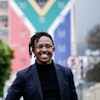Africa Program
The U.S.-Africa Business Center is a leader of the U.S. private sector’s commitment to Africa, with the goal of advancing policies that attract greater investment and support trade with our partners throughout the continent.
Since 2009, the U.S.-Africa Business Center (USAfBC) has been the preeminent voice advocating for increased trade between the U.S. and Africa, with a focus on leading the U.S. business community into deeper engagement with Africa’s regional economic communities, the established African private sector, and small and medium enterprises from Africa and the U.S. Its relationships with key members of Congress, the administration, and foreign governments open doors for strategic dialogues that advance private sector involvement in Africa.
Featured
Leadership and Staff
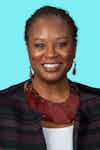
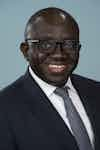
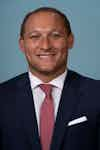
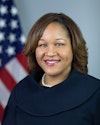
U.S.-South Africa Business Council
The U.S.-South Africa Business Council represents U.S. companies from virtually every sector participating in or looking to interact with the Southern African market, aiming to energize both governments and serving as a platform for companies to form lasting partnerships.
Latest Content
- Learn how the U.S. Chamber Is partnering with Africa to power the next era of opportunity for critical minerals.Empowering U.S.-Africa partnerships in critical minerals is essential to securing supply chains, advancing innovation, and maintaining global competitiveness.On September 11, the Chamber sent a letter to congressional leaders urging Congress to reauthorize the African Growth and Opportunity Act (AGOA) before it expires on September 30.The U.S. Chamber met with five African Heads of State, engaging in discussions to advance mutually beneficial commercial opportunities.At the World Health Assembly, the Chamber added to the global dialogue around sustainable manufacturing for health products and technologies through a focus on regulatory harmonization.Last month in Abidjan, Cote d’Ivoire, the inaugural West Africa AmCham Business Summit marked a key moment in the United States’ renewed commercial engagement with Africa.The U.S.-Africa Business Center is enhancing partnerships to build a reliable and ethical supply chain for critical minerals, supporting sustainable development and global economic security.Regulatory frameworks working in unison is essential to improving access to health technologies, strengthening health systems, and driving economic growth across Africa.The U.S.-Africa Business Center is leading the charge in transforming Africa’s healthcare landscape through partnership between public and private sector thought leaders.




